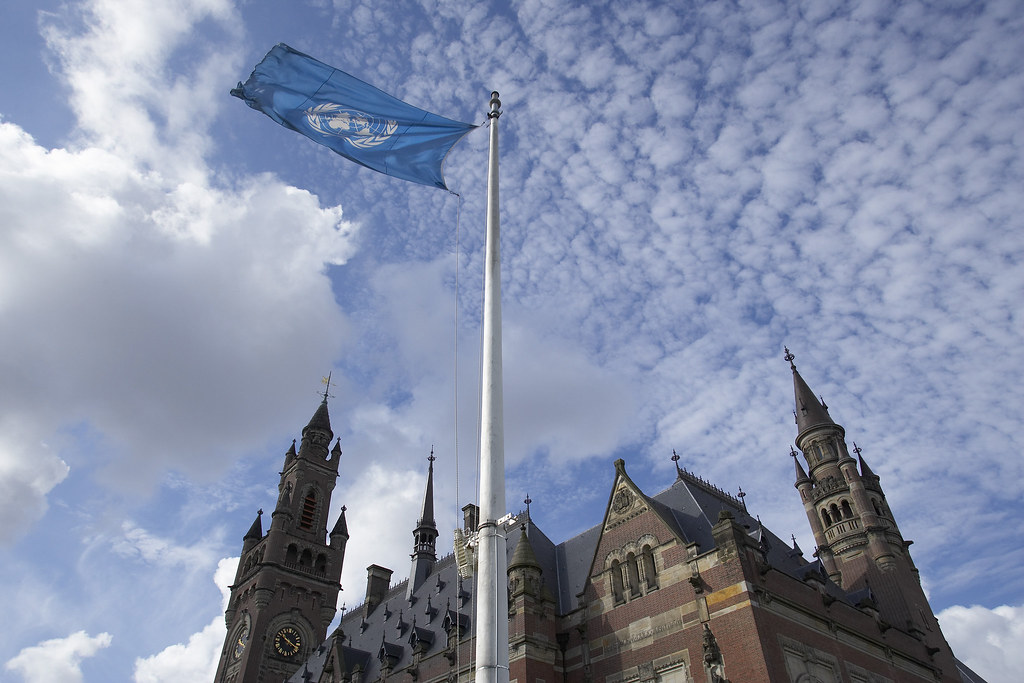Armed conflicts around the world are having a disproportionately harmful impact on civilian populations and their property. Cultural heritage is being deliberately targeted. Grotius in De Jure Belli ac Pacis Libres Tres(1625) noted that in antiquity: ‘Even enemy property that is sacred may be destroyed and pillaged’, to defeat them. This ethos runs contrary to the rules-based international order established and repeatedly reaffirmed by the international community concerning the laws and customs of war, over the last hundred years.
International legal framework
The damage or destruction of cultural property during armed conflict and belligerent occupation is prohibited, subject to the proviso of military necessity. Looting is prohibited outright. These rules were first codified in the1899 Hague II and 1907 Hague IV Conventions and Regulations. By 1946, the International Military Tribunal in Nuremberg (IMT) found that the Hague Regulations were customary international law, binding on all states. These obligations have been elaborated by subsequent treaties and courts over the last century. Including Additional Protocols I and II to the 1949 Geneva Conventions, and the specialist framework of the Hague Convention for the Protection of Cultural Property during Armed Conflict of 1954 and its 1954 First Protocol and 1999 Second Protocol; as well as the foundation statutes and judgments of international criminal courts like the permanent International Criminal Court (ICC) and the ad hoc International Criminal Court for the former Yugoslavia (ICTY).
Accountability for violations
Significantly, for the rule of law, the Hague Regulations prohibiting acts against cultural property also require that violations be made the ‘subject to proceedings’. International accountability efforts for attacks on cultural property during current armed conflicts (and belligerent occupation) cover:
- individual criminal responsibility of alleged perpetrators under international criminal law, and
- the international responsibility of states (and potentially non-state actors) under international humanitarian law and human rights law.
Conflicts in Ukraine, Palestine and Sudan are examples of this multipronged accountability approach for serious violations.
Culture as a target of war
The recording and broadcasting of cultural destruction has defined armed conflicts in the wars following the breakup of Yugoslavia in the 1990s, and those in the Middle East and North Africa today. New technologies enable greater public awareness and aid accountability efforts. Conflicts in the MENA led to the first Security Council resolution on cultural heritage (2347 of 2017). UNESCO, European Commission, and NGOs, like the International Council on Monuments and Sites (ICOMOS) and the International Council on Museums (ICOM), have verified significant damage and destruction of historical, cultural and religious monuments and sites, libraries and archives, and looting, following Russia’s full scale invasion of Ukraine in 2022. While UNESCO, NGOs, and local archaeologists document the destructive impact on historic, religious, educational, cultural, and archaeological sites, of the conflict in Gaza, since October 2023, and state-sanctioned violence in other Palestinian territories occupied by Israel. UNESCO and NGOs repeatedly raise concerns of looting of museums and archaeological sites and deliberate destruction of religious and cultural monuments, including World Heritage properties, in Sudan since April 2023.
International criminal courts and individual criminal responsibility
Accountability efforts concerning violations of prohibitions against cultural destruction in international humanitarian law (IHL) commenced unsuccessfully after the first world war. They were realised before the IMT after the second world war, and recommenced with the ICTY and the ICC. [AO1] Jurisprudence from these tribunals and courts makes clear, destruction and looting of cultural property during armed conflict and belligerent occupation can constitute a war crime and crime against humanity, and evidence of specific intent for the crime of genocide. The ICC Prosecutor’s current cultural policy is to investigate and prosecute international crimes against cultural property. Indictments issued for the situations in Ukraine (ICC-01/22), the State of Palestine (ICC-01/18), Darfur, Sudan (ICC-02/05), do not directly relate to cultural property. Nonetheless, these investigations have implications for any IHL violations arising from these conflicts including those related to cultural property. All three situations involve indictments of heads of state; and have engaged third party states’ obligation to apprehend and handover to the Court persons subject to an indictment (Mongolia, Jordan).
International Court of Justice and state responsibility
The destruction and looting of cultural property is increasingly raised before the International Court of Justice (ICJ) concerning international responsibility for human rights and IHL violations by states. The conflicts involving Ukraine/Russia, Palestine/Israel, and Sudan have current or recent proceedings before the ICJ. The Court’s jurisdiction is invoked under the Genocide Convention and Convention on Elimination of Racial Discrimination (CERD). Sudan’s proceedings against the UAE related to alleged violations of the Genocide Convention was dismissed due to lack of jurisdiction at the preliminary measures phase, to the chagrin of several Justices. Ukraine’s also sued Russia under CERD claiming racial discrimination against Crimean Tatar and Ukrainian communities in Crimea. The allegations included destruction of cultural institutions and restrictions on cultural activities. The Court found insufficient evidence -due to the conflict – to support a finding of a discriminatory pattern related to race. Ukraine has recently instituted proceedings under the Genocide Convention and requested provisional measures against Russia.
The Palestine and Israel conflict has engaged the Court’s advisory and contentious jurisdiction. In its 2025 Advisory Opinion, the ICJ held that Israel breached international law. The Court ordered Israel to return all cultural property, assets, archives and documents removed since 1967. If restitution was impossible, Israel was required to provide compensation instead. The Court found obligations erga omnes violated by Israel including the right to self-determination, prohibition against the use of force, and human rights and IHL obligations; and that all states must cooperate with the UN to bring these violations to an end. The current war in Gaza has prompted new ICJ proceedings. Nicaragua has brought a case against Germany, and South Africa has filed an application against Israel under the Genocide Convention. The UN General Assembly has requested an advisory opinion concerning Israel’s international obligations to the United Nations, other international organisations and third states, which are yet to be concluded. The ICJ granted provisional measures in May 2024 that Israel ceases acts that could violate its obligations under the Genocide Convention.
UN Human rights bodies and documentation of violations
The ICJ and ICC have often and at length referred to reports by UN and regional human rights bodies in their judgments in support of their findings. Unlike courts and tribunals, these bodies can provide more detailed and real-time documentation of cultural destruction and related analysis of violations of human rights and IHL obligations. The UN Human Rights Council’s Independent International Fact-Finding Mission for Sudan submitted its first report in 2024 pursuant to its mandate to investigate, collect and analyse evidence of human rights and IHL violations and cooperate with accountability efforts including the ICC. The Independent International Commission of Inquiry on the Occupied Palestinian Territories in its May 2025 report provided extensive and detailed information on violations of human rights law, IHL, and possible international crimes arising from attacks against cultural and religious sites. These acts were referenced in a subsequent report which stated that Israel is engaging in genocide in Gaza. Violations of human rights and IHL obligations related to cultural heritage in Ukraine after 2022 have been detailed by the OSCE report of 2022 and recent Report of the Independent International Commission of Inquiry on Ukraine.
Conclusion
New technologies enable us to be aware of atrocities including cultural destruction in current conflicts from every corner of the globe in real time. The limited resources and pace of work of international courts and tribunals means accountability efforts are slow and limited. There remains a commitment to ending impunity. Multilateral framework of treaties, and the courts and tribunals established to upholding them, though far from perfect, ensure that the perpetrators of violations against IHL including against cultural property, can and should be held to account.
Professor Ana Filipa Vrdoljak is UNESCO Chair in International Law and Cultural Heritage and Professor, Faculty of Law, University of Technology Sydney.
This article is published under a Creative Commons Licence and may be republished with attribution.





